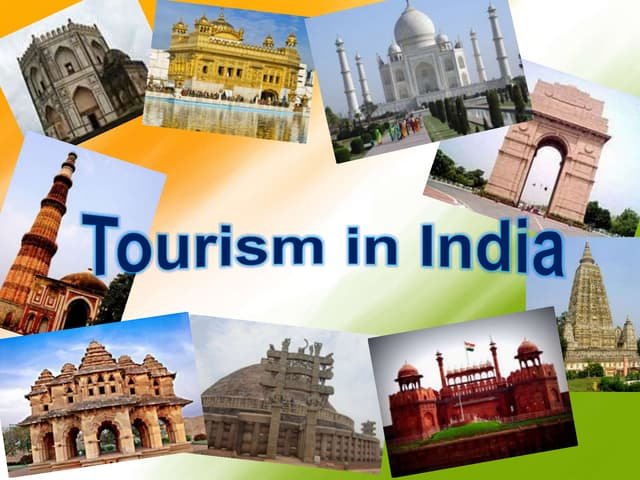"Journeying Through India: Unveiling the Transformative Power of Tourism"

Introduction:
India, a land of vibrant colors, rich cultures, and ancient traditions, beckons travelers from around the globe to embark on a journey of discovery and exploration. As one of the world's leading tourist destinations, India's tourism industry plays a crucial role in driving economic growth, promoting cultural exchange, and preserving the country's diverse heritage.
Economic Impact:
Tourism serves as a significant contributor to India's economy, generating revenue, creating jobs, and supporting local businesses across the country. From bustling cities like Delhi and Mumbai to remote villages in rural India, the tourism industry provides opportunities for employment in sectors such as hospitality, transportation, and handicrafts, thereby uplifting communities and driving socio-economic development.
Cultural Exchange:
India's rich tapestry of cultures, languages, and traditions makes it a fascinating destination for cultural exchange and exploration. Tourists from around the world have the opportunity to immerse themselves in the sights, sounds, and flavors of India, from exploring ancient monuments like the Taj Mahal and the Red Fort to participating in colorful festivals such as Diwali and Holi. Through these interactions, tourists gain a deeper appreciation for India's heritage and contribute to the preservation of its cultural legacy.
Promotion of Heritage:
India boasts a wealth of UNESCO World Heritage Sites, including architectural marvels, natural wonders, and historic landmarks that showcase the country's rich history and cultural heritage. Tourism plays a vital role in preserving and promoting these sites, raising awareness about their significance and encouraging conservation efforts to safeguard them for future generations to enjoy. By attracting visitors from around the world, India's heritage sites become symbols of national pride and global cultural heritage.
Environmental Sustainability:
While tourism brings undeniable benefits to India's economy and cultural heritage, it also poses challenges to environmental sustainability and conservation. As tourist numbers continue to rise, it becomes imperative to implement sustainable tourism practices that minimize environmental impact, protect natural habitats, and preserve biodiversity. Initiatives such as eco-friendly accommodations, responsible wildlife tourism, and community-based tourism empower local communities to become stewards of their natural resources while providing authentic and enriching experiences for visitors.
Conclusion:
India's tourism industry serves as a gateway to the country's rich tapestry of cultures, landscapes, and experiences, offering travelers a journey of discovery and enlightenment. As we navigate the complexities of a rapidly changing world, tourism emerges as a powerful force for economic growth, cultural exchange, and environmental sustainability. By embracing the importance of tourism and fostering collaboration between government, industry stakeholders, and local communities, India can unlock the full potential of its tourism sector and pave the way for a brighter, more inclusive future.